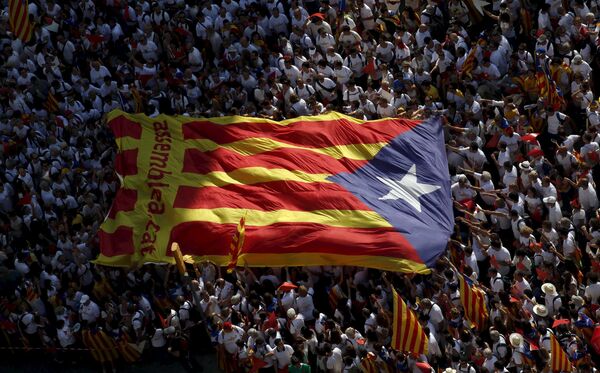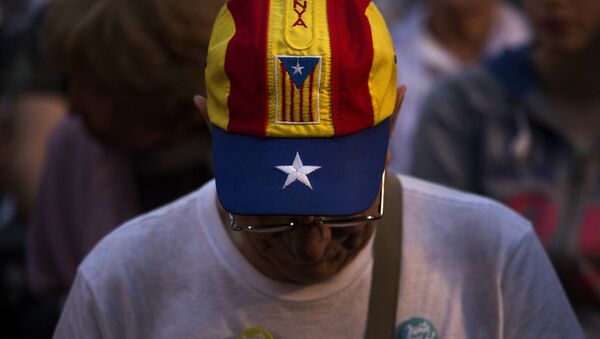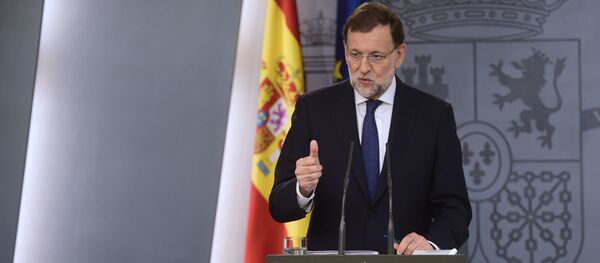Mr Mas has accused the Spanish prime minister, Mariano Rajoy, of manipulating the country's top court "instead of sitting down, listening, negotiating and reaching agreements."
Artur Mas: "There are countries that work very well outside the EU". #NoEnMiNombre #notinmyname pic.twitter.com/9gL7uHQtHM
— SCC International (@societatcc_int) November 8, 2015
However, Jonathan Hopkin, an Associate Professor at the London School of Economics and Political Science and commentator on Spanish politics, says that the Prime Minister is correct to challenge the Catalan motion.
"Legally, Mas doesn't have a leg to stand on. The integrity of the Spanish state is entrenched in the constitution, so the Catalan region cannot unilaterally chose to secede from Spain. Politically, it's all a big mess."
Catalan's regional assembly has said it will aim for independence within 18 months, a move Prime Minister Rajoy has blasted as an attempt "to do away with democracy."
Pro-independence leaders remain defiant saying they were given a mandate by the Catalan people after winning a majority in September's regional election.
Yet, critics refute the legitimacy of this mandate.
On Thursday, Catalan's left-wing CUP party refused to support the continuation of Mr Mas as leader of the regional government. His conservative CDC party have been hit by a series of damaging corruption scandals.
Mr Mas and other separatist leaders now have two months to agree on who should lead the Catalan government and head the drive toward independence. The deadline is January 10, which if not met, will spark new regional elections, further complicating the separatist movement.
"Mas has boxed himself into this corner because the mainstream nationalists need the support of the radicals like the left-wing CUP party to achieve independence."
"But Mas's CDC party and the radicals can't agree on almost any other issue apart from independence. And if CUP doesn't participate then Mas can't remain as president and even the mandate they have won't stand," says Professor Hopkins.
"Put it this way, I'll be very surprised if Catalan is independent in 18 months."
The Catalan parliament's launch of a unilateral secession process is legally suspended until a final ruling by the Spanish Constitutional Court.

Whilst the stand-off continues, Spain's Chief public prosecutor has instructed Catalonia's police force to report instances of sedition and rebellion against authority. The charges carry possible jail sentences of between 10 and 30 years' imprisonment.
Ahead of the Spanish elections next month, Prime Minister Rajoy has staunchly vowed to continue denying the right for the Catalan region to hold a separatist referendum. Spaniards will go to the polls on December 20.



